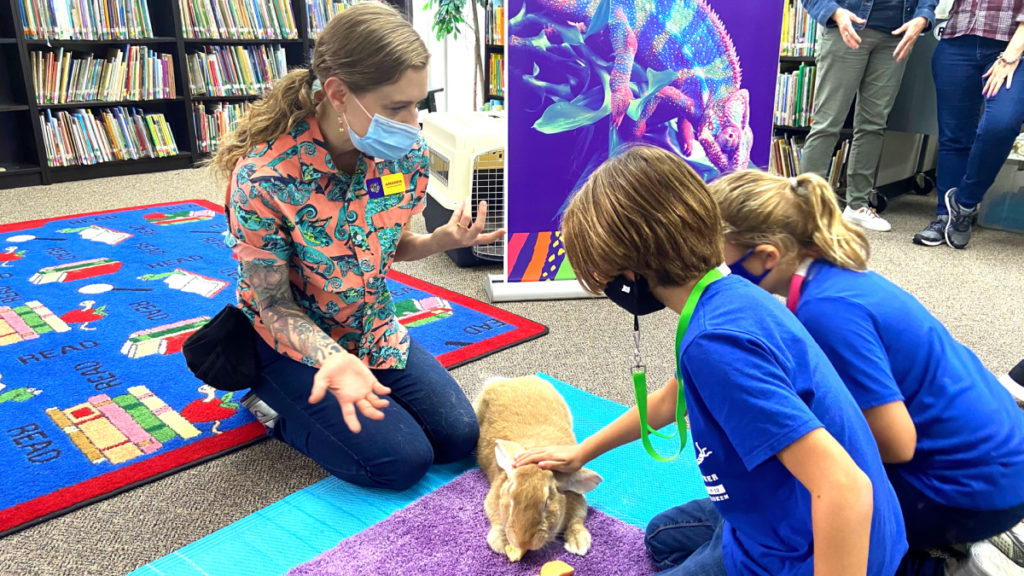
We are proud to present this guest post by Amanda Winter, Founder of Once in a Wild, about how having an animal program in the classroom enhances education.
When a child visits a zoo and sees a mammal, bird, reptile, or insect for the first time, it is as if they have stepped into a special world. Likewise, bringing animals in schools through an animal classroom program, complete with new sights, sounds, smells, and information, creates a mysterious—yet exciting!—place for children to have the opportunity to connect with nature and enhance their education.
Children are naturally drawn to animals. While adults view animals, including pets, for what they can give us (e.g., companionship), children tend to recognize animals first as living creatures. This is why you’ll often see a child bend down to stroke the neighborhood cat, fill a container with soil and bugs from the backyard, or become upset when a fly is swatted.
A Stimulating Environment to Learn
Introducing students to small animals in a school setting helps to create an interactive experience and provides a fun educational benefit. The phonetics we use to describe what the child is seeing—a chameleon, rabbit, or scorpion, for example—can help develop their vocabulary and comprehension skills. The words we often use, and the names of our animals, often bring forth a giggle or two as well!
The best way to learn is by doing and feeling, so we often invite children to come up close. With some of our species of animals, we even allow them to have a hands-on experience. We explain each animal’s natural habitat, their quirky characteristics, and—most importantly—what foods they like to eat. This dialogue stimulates a child’s imagination beyond the everyday classroom experience.
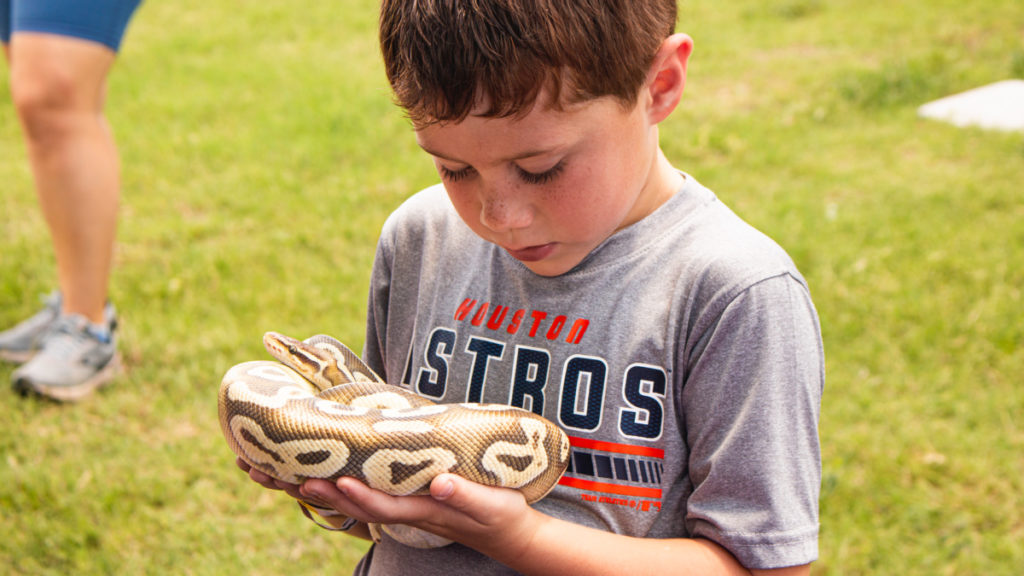
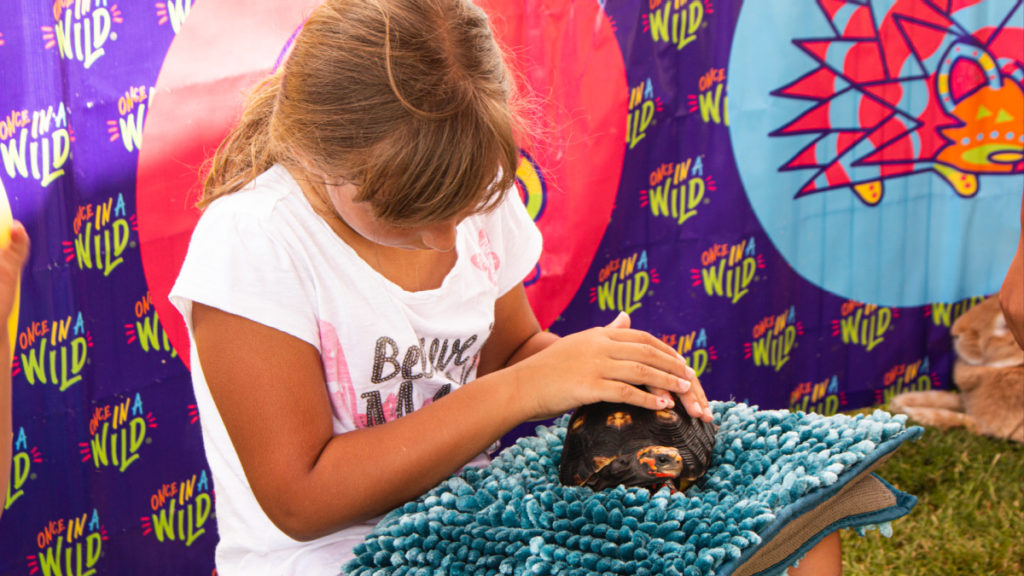
Empathy and Compassion
There is a growing consensus that children who learn about the proper care of animals, and the wider environment they live in, become more compassionate and caring towards other people, too. An animal classroom program can create a special bond between a child and an animal, and help a child’s emotional development. Stroking their fur, touching their scales, watching their movements, and observing their natural habits all work to create an emotional bond.
This impact can also be seen in classroom behavior. The more time children spend with animals, the higher their empathy levels rise. They begin to understand that the common needs for both animals (and humans) to survive include food, shelter, and water. Additionally, the calming effect that animals can have on children often leads to positive change in relationships within the class. Bringing in a classroom pet can help students develop a greater sense of responsibility. All of these developments can greatly enhance a child’s overall education.
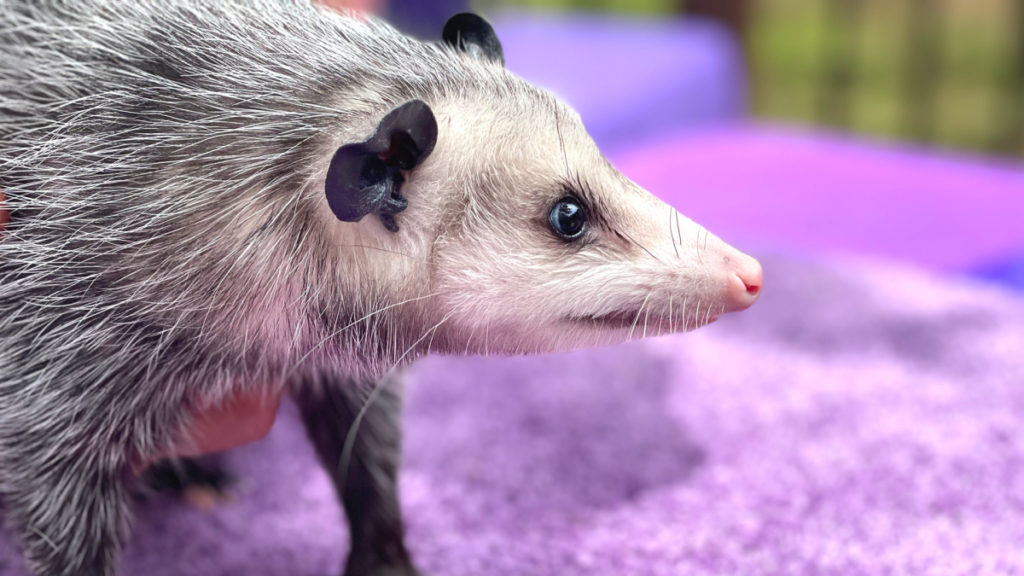
Learning Opportunities to Suit Every Child
Each and every child is unique, and learns in a different way from their classmates. Involvement of animals in the classroom, with its multi-sensory approach, provides each child with a stimulating environment to learn.
We know some children just love to quietly listen. Once in a Wild’s Zoologist and Animal Specialist, Amanda Winter, says, “I talk about the animals we look after from dawn until dusk! And just know some children would be happy to sit with her all day if they could, soaking up every last word.”
However, there are also children who might become bored very quickly, and a few adults who may be like that, too. But animals in classroom settings enrich those children who thrive more on stimuli—like visuals, touching and feeling, and even opportunities to be outdoors. Those rich signals easily give them a chance to soak up the knowledge that’s all around them.
Adding a zoo animal program to your school activities delivers an incredible learning experience for children, and can greatly enhance their education in countless ways. Animal classroom encounters cater to all ages and curriculums (not just elementary schools!). It’s just a matter of discussing your educational preferences or requirements with your school principal.
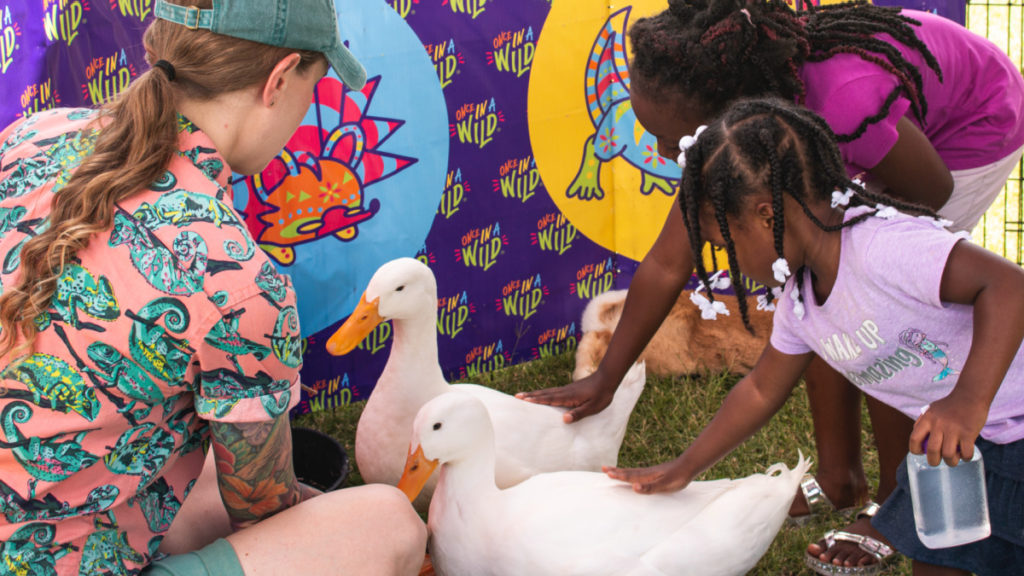
Learn More About Animal Interaction in the Classroom
- Once in a Wild Mobile Zoo
- Classy Critters Animal Encounters: Classroom programs featuring live animals are a great way to educate your students.
- ZOOm Room Animal Encounters: Bringing the zoo to you via interactive virtual ZOOm Room animal encounters.
- Once in a Wild’s YouTube Channel and Facebook page
Charter Moms Chats
Watch a special edition of Charter Moms Chats, on Once in a Wild Wednesday, hosted by Amanda Winter, with Inga Cotton as guest, on November 1, 2023 at 6:30 PM Central on SA Charter Moms Facebook, Once in a Wild Facebook, and Once in a Wild YouTube. Be sure to subscribe and follow Once in Wild for notifications of Once in Wild Wednesdays, with new episodes on the first Wednesday of each month at 6:30 PM. Each time, viewers will meet a group amazing animal ambassadors, and learn all about them and their natural histories. Tune in LIVE to see which animals make an appearance! This is an interactive event, so please type in your comments and questions. Also, please help out by tagging and inviting all your animal-loving family members and friends.
Amanda Winter is a Zoologist and Co-Founder of Once in a Wild. She has worked professionally with a wide variety of animals for over 20 years, including at 5 world renowned zoological facilities. She grew up in Texas but obtained her zoology degree from the Santa Fe College Teaching Zoo during her time living in Florida. Amanda specializes in animal care, training, and presenting with birds, mammals, reptiles, amphibians, and invertebrates. It has been a lifelong aspiration of hers to change the world for the better by teaching others about all of earth’s creatures, whether they be great or small.
Inga Cotton is the Founder and Executive Director of San Antonio Charter Moms. Inga is the mother of Annika, age 13, and Nicholas, age 16, and on the autism spectrum. Inga is the Founder and Executive Director of San Antonio Charter Moms, a nonprofit that helps families find schools that are the right fit for their children and become advocates for quality education. Inga has lived in San Antonio since high school and has a B.A. in History from Trinity University and a law degree from the University of Texas. In 2011, she learned about new charter schools coming to San Antonio. She wanted to help spread the word to families, so she created the San Antonio Charter Moms blog in 2012. Over time, San Antonio Charter Moms became an online community, including an active discussion group on Facebook, and became a non-profit organization in 2018. Inga and her family enjoy hiking at parks and trails, going to museums and concerts, and trying new recipes and restaurants.
Read More About Animals in Schools and Education
- “San Antonio Charter Moms help us learn about our local schools!,” YouTube, July 28, 2021
- “Wild Wednesday: Mobile zoo will bring the ‘animal party’ to you,” KSAT, May 19, 2021
- “How to have a rodeo experience in San Antonio even though you can’t go to the San Antonio Stock Show & Rodeo at Freeman Coliseum,” René A. Guzman, San Antonio Express-News, February 9, 2021
- “Need ideas for coronavirus kids parties? These San Antonio mobile petting zoos bring the animals to you,” Richard Marini, San Antonio Express-News, October 27, 2020
- “Fostering Dogs as a Family Community Service Activity,” Ramona Gutierrez, San Antonio Charter Moms, July 7, 2020
- “Animal Shelter Volunteer Opportunities in San Antonio for Kids,” Amy Johnson, San Antonio Charter Moms, February 28, 2019
